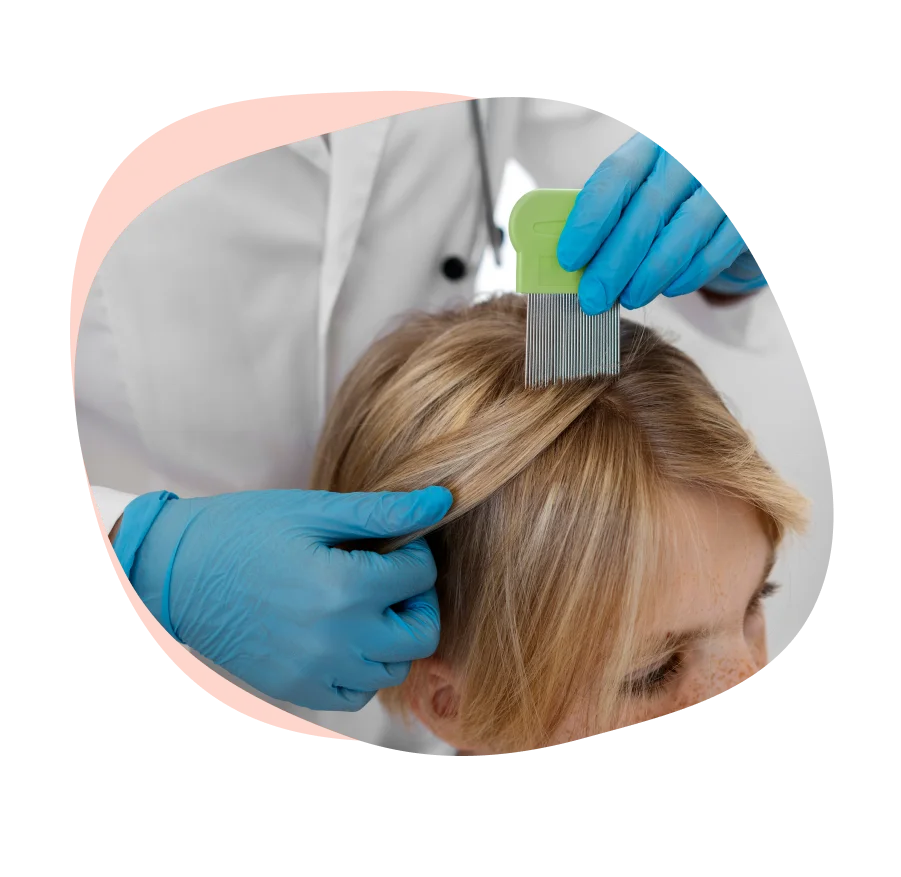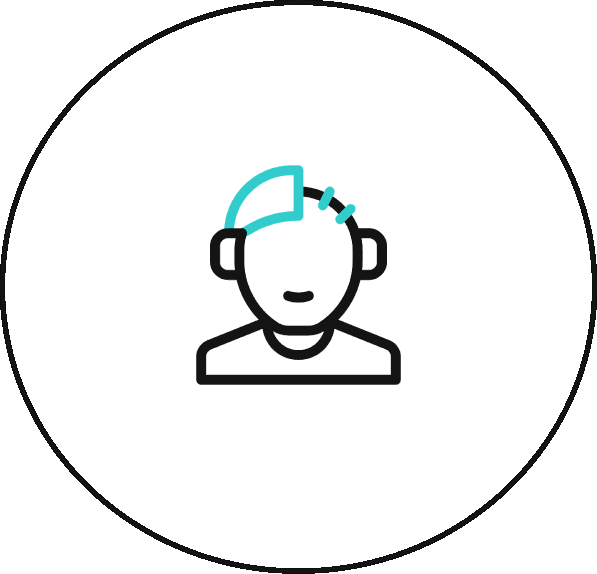Scarring Alopecia
Scarring Alopecia![]()
What is Scarring Alopecia
Scarring alopecia, also known as cicatricial alopecia, is a type of hair loss disorder characterized by permanent destruction of hair follicles, resulting in bald patches on the scalp. This condition is caused by inflammation and the replacement of hair follicles with scar tissue. Here’s an in-depth look at scarring alopecia, including its types, causes, treatment options, and hair care tips
Background of Scarring Alopecia:
Scarring alopecia is a relatively rare condition that leads to permanent hair loss and baldness. It can occur gradually over several years or rapidly within a few months. Symptoms may include severe itching, pain, burning sensations, and shedding of hair. The inflammation that causes hair follicle destruction often occurs below the skin’s surface, making it challenging to detect early signs.
Looking for effective scarring alopecia treatment in Bhubaneswar? Contact AlloRoots for personalized care and advanced therapies to restore your scalp health.
Who Gets Scarring Alopecia
Scarring alopecia can affect both men and women of any age and is not contagious. While some types may have a genetic predisposition, others may occur randomly. Certain types, such as pseudopelade, are more commonly seen in adult women. Generally, scarring alopecia is not common in children, but specific types can affect adolescent males.
Types of Scarring Alopecia
Scarring alopecia is classified into primary and secondary. Primary scarring alopecia involves irreversible destruction of hair follicles, while secondary scarring alopecia occurs when follicles are damaged due to trauma or some hair styling pattern.
Symptoms of Scarring Alopecia:
Scarring alopecia typically begins as permanent bald patches on the scalp, which may gradually expand over time. The affected areas often appear smooth and shiny, with a loss of skin pores. Sometime it may be associated with
Causes of Scarring Alopecia
The exact causes of scarring alopecia are not fully understood, but inflammation is believed to play a significant role. Most cases involve the permanent destruction of hair follicles due to inflammation and the progressive deposition of collagen. Factors such as injuries, burns, tumors, genetic predisposition, and hair-care practices may also contribute to scarring alopecia.
Scarring Alopecia![]()
![]()
![]()
![]()
![]()
Treatment Options for Scarring Alopecia
The primary goal of treating scarring alopecia is to manage symptoms and prevent further hair loss. Since hair regrowth is not possible once follicles are destroyed, treatment mainly focuses on reducing inflammation. Treatment options may include:
- Topical or oral corticosteroids to control inflammation and itching.
- Oral medications such as antimalarial drugs, corticosteroids, or retinoids for lymphocytic scarring alopecia.
- – Antibiotics or antiseptic shampoos for neutrophilic scarring alopecia.
- Hair transplantation can be done in successful cases once the disease process is stabilized.


Scarring Alopecia![]()
![]()
![]()
![]()
![]()
Conclusion
Living with scarring alopecia can be challenging, but with proper management and care, individuals can minimize symptoms and improve their quality of life. If you suspect you have scarring alopecia, consult with a dermatologist for accurate diagnosis and personalized treatment.
For more information and personalized care for scarring alopecia, reach out to our experienced team at AlloRoots Hair Restoration. We’re here to support you on your journey to healthier hair and greater confidence.
At AlloRoots in Bhubaneswar, Delhi, Chennai & Haldwani we offer specialized treatment for scarring alopecia, a condition that leads to permanent hair loss due to inflammation and scarring of the hair follicles. Our experienced team provides personalized care and advanced therapies to manage and treat this challenging condition effectively. If you’re seeking scarring alopecia treatment in Bhubaneswar, Delhi, Chennai or Haldwani, trust AlloRoots to help restore your scalp health and improve your quality of life. Contact us today to book your consultation and begin your journey towards healthier hair.
Why Choose Us?


Premier Surgeons: Expert alumni from AIIMS Delhi with 10+ years of experience.


Maximum Viability: Optimize graft survival with cutting-edge advanced Technology (Realtime Bio- Enhanced FUE)


Natural Hairline Design: Achieve the most natural hairline with 3000+ success stories.


Uncompromised Safety: 100% doctor-led surgeries with strict safety protocols.
Scarring Alopecia![]()
![]()
![]()
![]()
![]()
Frequently Asked Questions
What is scarring alopecia?
Scarring alopecia is a group of relatively rare disorders that damage—eventually destroy—hair follicles and replace them with scar tissue. The loss of hair is usually permanent.
What are the causes of scarring alopecia?
Scarring alopecia can be due to autoimmune diseases, infection, or inflammatory conditions like lupus or lichen planopilaris. In most cases, the actual cause remains specific to the type of scarring alopecia involved.
Can scarring alopecia be treated?
Whereas hair loss resulting from scarring alopecia is irreversible, early treatment can prevent further progression of the disease process. Appropriate medications, such as anti-inflammatory, corticosteroids, or immunosuppressive drugs, may be prescribed.
How is scarring alopecia diagnosed?
A dermatologist diagnoses it by clinical examination in association with scalp biopsy and sometimes imaging tests to probe the extent of damage to the hair follicles.
What are the symptoms of scarring alopecia?
In scarring alopecia, there is redness, scaling, and itching of the scalp with associated areas of hair loss. Over time, the areas can become smooth and shiny with a loss of follicles as the scar tissue forms.
Is scarring alopecia contagious?
Scarring alopecia is not contagious. It is purely a medical condition and not contagious in any way from one individual to another.
Are there surgical options for scarring alopecia?
In some patients, hair transplant surgery may be entertained with stable scarring alopecia. This will, however, be an option only when the underlying inflammatory process has been adequately controlled.
Reach Out for a Hair Transformation Today!
Contact Us.
Delhi: C-26, First Floor, Greater Kailash 1, New Delhi, 110048, India
Bhubaneswar: 2nd Floor, D 1 Square , Nandan Kanan Road , KIIT Square, Patia, Bhubaneswar, Odisha 751024
Uttarakhand: Gularbhoj Rd, near The Royal Gym, Dineshpur, Gurunanakpur, Uttarakhand 263160
Chennai: 39/2, RK Shanmugam Salai, Goutham Colony, K. K. Nagar, Chennai, Tamil Nadu 600078




